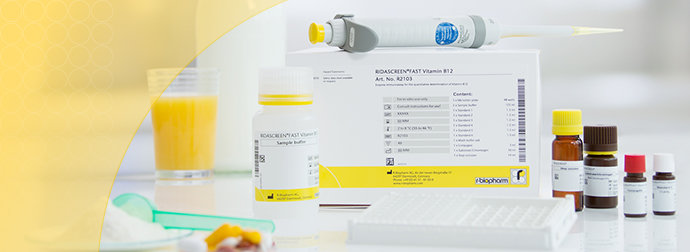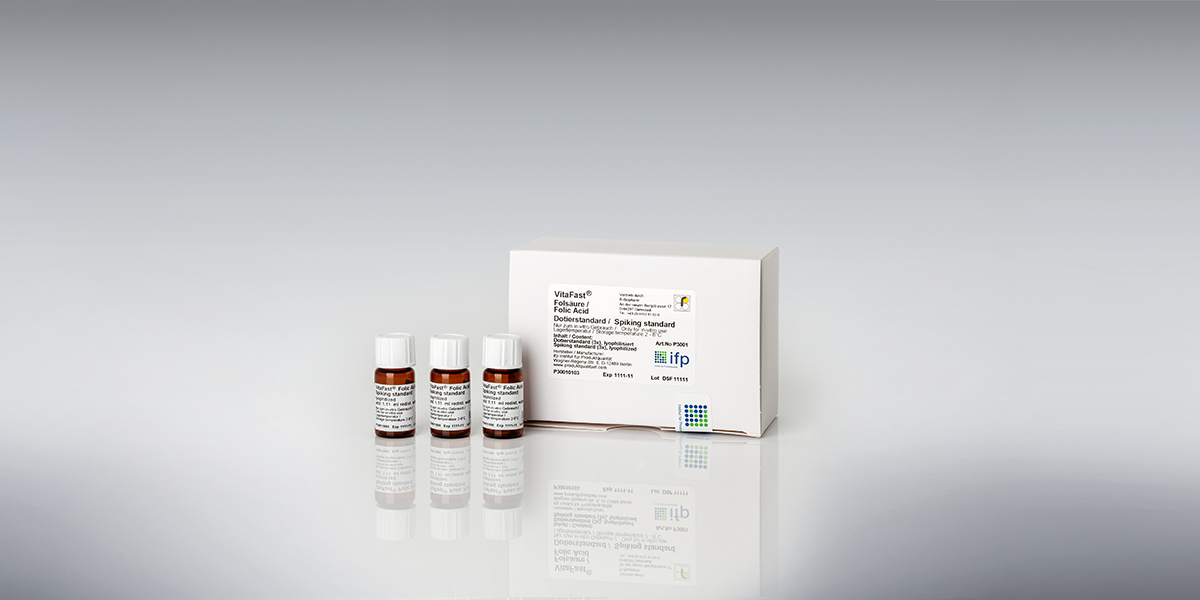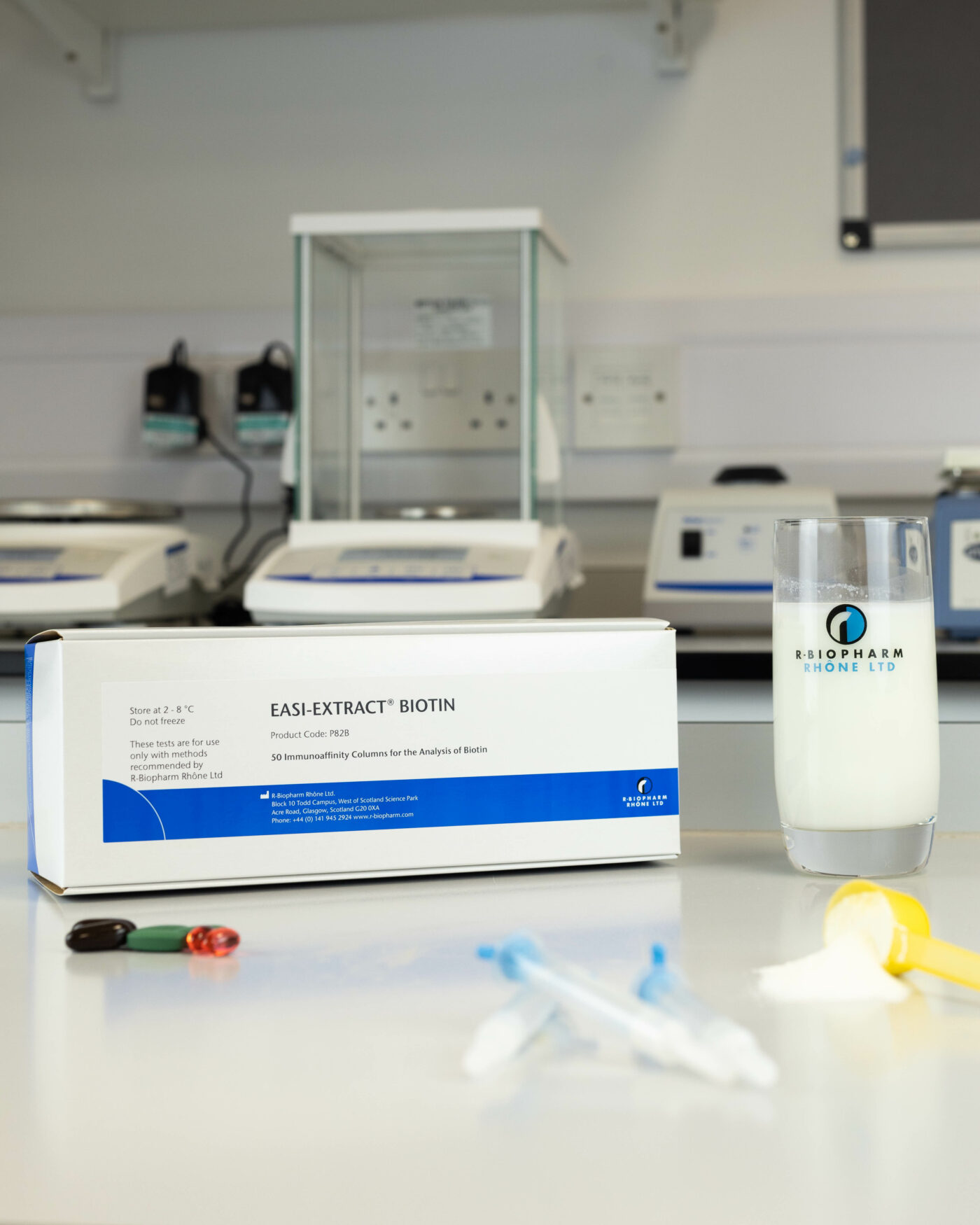
Recent news in Food & Feed Analysis
- Home
- /
- Vitamin analysis: New test...
Vitamin analysis: New test kits for the determination of vitamin content in food

On 7th March, it’s “healthy eating day” in Germany. This annual event was called into life by the German Food and Dietetics Association (VFED). For this occasion, we take a closer look at some substances that are strongly associated with healthy eating: vitamins.
Vitamins are essential to our health: Our body needs them for metabolism, for energy production, for the immune system and for the cell formation. A lack of vitamins may cause deficiency symptoms such as circulatory disturbance, metabolic disorder, anemia or muscular atrophy. 13 vitamins are regarded as vital for humans:
[vc_column_inner width=”1/3″]
- vitamin A
- vitamin B1
- vitamin B2
- vitamin B3 (niacin)
- pantothenic acid
[vc_column_inner width=”1/3″]
- vitamin B6
- vitamin B7 (biotin)
- folic acid
- vitamin B12
- vitamin C (ascorbic acid)
[vc_column_inner width=”1/3″]
- vitamin D
- vitamin E
- vitamin K
[vc_column_inner]Since vitamins cannot be produced by the human body itself (with the exception of vitamin D and niacin), they must be consumed with food. A balanced diet is therefore essential. This includes of course fruit and vegetables, but also fish, meat, cereals, nuts and dairy products. Moreover, some foods are artificially enriched with added vitamins. Supplements offered as tablets or powders can contribute to an optimal vitamin supply, too.
Vitamin analysis using ELISA tests
Especially juices, baby food and dairy products are often advertised to be enriched with vitamins and thereby to contribute to a healthy diet. There are different methods that allow it to examine whether the product actually contains the amount of vitamins that is indicated on the label. For example, immuno-affinity columns (IAC) are one commonly used method in vitamin analysis. These columns are used for sample purification prior to a liquid chromatography using HPLC (high performance liquid chromatography) or LC/MS. However, a more simple and affordable method is an ELISA test. This antibody-based Immunoassay is the technique we use for our new RIDASCREEN®FAST vitamin tests.
The new RIDASCREEN®FAST Vitamin B12 and the RIDASCREEN®FAST Folsäure/Folic Acid are significantly faster and easier to use than traditional methods. The unique method needs less than one hour to detect vitamins in food. Milk and juices can even be applied directly onto the microtiter plate without sample preparation. Particularly convenient is that both test kits use the same sample buffer and sample preparation procedure: In this way, you can test for vitamin B12 and folic acid with only one sample weigh-out and one fast sample preparation.
Here you can see the different methods for vitamin analysis at a glance:
| RIDASCREEN®FAST | VitaFast® | EASI-EXTRACT® | |
|---|---|---|---|
| Method | ELISA test | Microbiological test | Immuno-affinity column |
| Duration | Incubation period: 25 minutes | Incubation period: 44-48 hours (Pantothenic acid: 24 hours) | 2-3 hours for clean-up, plus HPLC- or LC/MS-analysis |
| Benefits | Easy to use No toxic chemicals required | High precision Some tests are AOAC-RI certified | High recovery Low coefficients of variation |
| Available for: | Vitamin B12 Folsäure (Folic Acid) | Vitamin B12 Folsäure (Folic Acid) Biotin Vitamin B1 Vitamin B2 Vitamin B3 (Niacin) Vitamin B6 Vitamin C Pantothensäure (Pantothenic Acid) Inositol | Vitamin B12 Folsäure (Folic Acid) Biotin |



